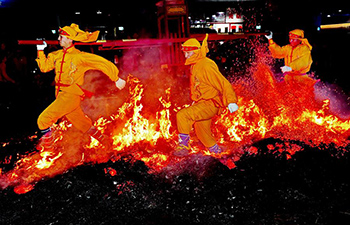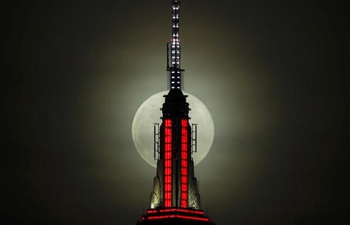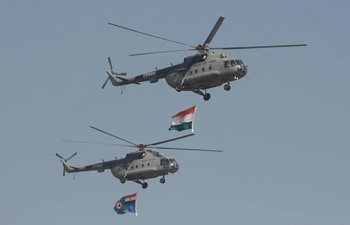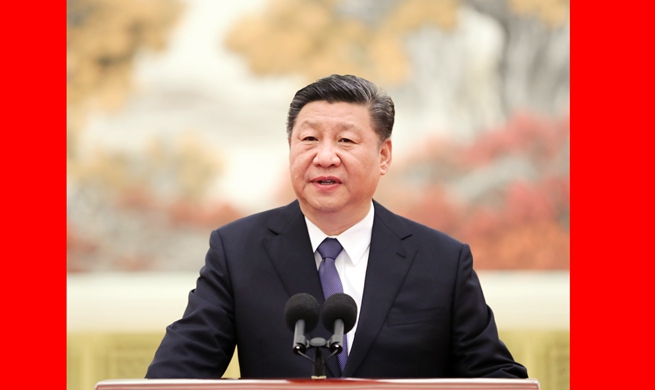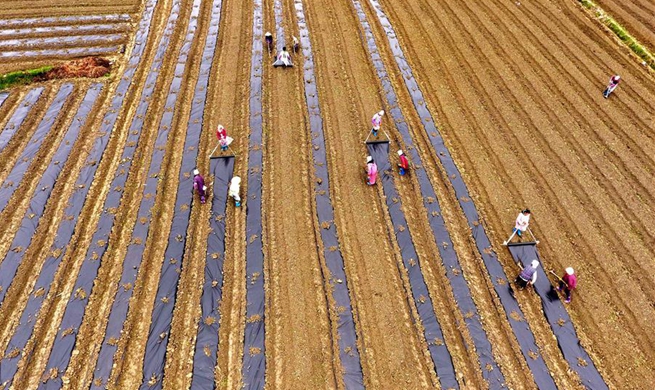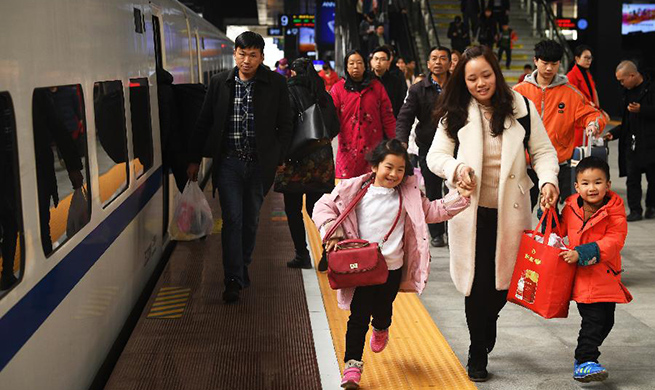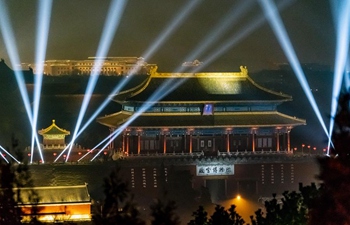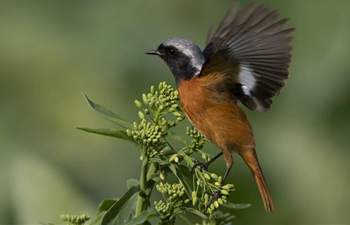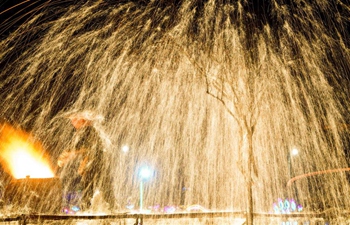by Olatunji Saliu
ABUJA, Feb. 21 (Xinhua) -- As the rescheduled Nigerian presidential election is just two days away, experts have warned that effects of the vote delay still linger and it is not clear where the pendulum swings.
Just hours before the opening of polls scheduled on Feb.16, Nigeria's Independent National Electoral Commission (INEC) announced a one-week delay in polling, citing logistical issues.
The decision triggered widespread anger among Nigerians and the two main political parties blamed each other for the delay. Many experts believe the postponement have negatively affected the country's credit rating, investment and trading sector.
TWO-HORSE RACE
About 84 million Nigerians, representing about 42 percent of the country's population of 198 million, were registered to vote in the general elections, according to INEC.
More than 70 presidential candidates have been greenlighted by INEC earlier. However, the election will, no doubt, be a two-horse race between Muhammadu Buhari of the governing All Progressives Congress (APC) party and Atiku Abubakar of the main opposition Peoples Democratic Party (PDP).
The incumbent President Buhari is seeking a second term of office on the platform of the APC. He came into power in 2015, becoming the first Nigerian opposition candidate to unseat an incumbent president.
Buhari's campaign slogan for the 2015 election was "change." Through this slogan, he promised to turnaround the economy for good, fight endemic corruption and enhance the security of the country.
In November 2018, Buhari launched his re-election campaign with a new slogan: "Next Level 2019", in which he put jobs, infrastructure and the business environment ahead of security and fighting corruption.
Buhari is revered by many Nigerians, especially by northerners who call him "Mai Gaskiya" (a Hausa expression which means: one who always speaks the truth). Others call him "Mr. Integrity," who has zero tolerance for corruption.
Accusing the incumbent president of failing to address Nigeria's economic problems in the past years, Abubakar unveiled a campaign manifesto covering issues of job creation, national security, healthcare, education, infrastructure and other critical sectors of the economy.
Abubakar was Nigeria's vice president from 1999 to 2007. As one of the most successful businessmen in Nigeria, local experts believe that he knows how to deal with the economic difficulties of the most populous African country.
However, the multiple allegations of corruption and fraud levelled against Abubakar continue to taint his image.
A Senate investigation in 2006 found Abubakar guilty of illegally taking funds belonging to the Petroleum Training Development Fund (PTDF).
The former vice president has also been consistently linked with jailed U.S. Congressman William Jefferson who was sentenced to 13 years in a U.S. jail for bribing Nigerian officials in 2007.
Azu Ishiekwene, a local political analyst, said whatever the shortcomings of Buhari and Abubakar, their parties believe they are the best candidates they can produce at this time.
In this light, he said Nigerians would have to choose from what they have, or sit idle for another four years.
RESCHEDULED POLLS
The postponement of this year's presidential polls in Nigeria was greeted with criticism. This development could cause some to boycott Saturday's election, according to local experts.
Ahead of last week's rescheduled elections, enthusiasm had been high among the citizenry. The election had also drawn the attention of the international community given the position and prospects of Nigeria in the global arena.
According to Ifeanyi Onuba, a public affairs analyst, the postponement of the presidential and National Assembly elections by INEC has monumental adverse economic impacts. These costs were escalated by the fact that the announcement came on the very day the elections were to be held after a number of irreversible steps had been taken by various economic agents and stakeholders.
Many people had traveled far distances just to exercise their franchise before the INEC decision, while many organizations such as banks, insurance firms, manufacturing companies, among others, had to shut down temporarily last Saturday.
Onuba noted apart from the closure of companies, domestic and international flights were canceled, borders were shut, and markets, schools, and production plants were also closed.
Shakirudeen Olaleye, a political analyst, told Xinhua that those willing to participate in the rescheduled polls might put the aforementioned implications into consideration.
"While some may think it's sabotage against a certain political party, others might angrily cast their votes for different parties. For the two leading parties, I can tell you that chances of winning in this election are now 50-50," Olaleye said.
Journalist Folorunsho Amsat said that one of the side effects of the postponement could be low voter turnout when the election is finally held.
"The momentum is dying," he said. "I hope it's not dead within one week."






